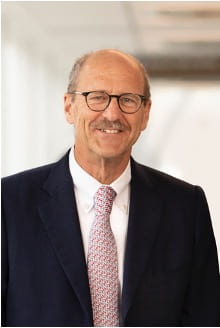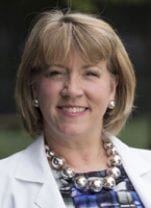Welcome to the Washington University School of Medicine
in St. Louis Dis-Orientation Guide!
The official student-produced guide to our school, city, and life in medical school.
The Dis-Orientation (Dis-O) Guide is here for you as you enter medical school. Dis-O serves to introduce you to the ins and outs of life as a medical student at WashU. Each Dis-O Guide is a snapshot in time crafted by the M1 class. If you are curious about perspectives from classes that came before; the Dis-O digital archives contain Dis-O Guides going back nine years.
Before you enter the 2023-2024 guide, our dean of the medical school, associate dean for student affairs, associate dean for admissions, and associate dean for diversity warmly welcome you to Washington University School of Medicine.
All of us (from M1s to M4s, lecturers to thread leads, and all of our staff and deans) want to help you succeed and achieve your goals. We also want your time in medical school to be one of delight as much as it is transformative.
From David H. Perlmutter, MD
Dear Members of the Entering Class of 2023,
Welcome to Washington University School of Medicine.
You were each selected from a highly gifted pool of applicants based on what we believe is your potential to be one of the health care leaders of tomorrow. But just as importantly, you chose us. We are extremely fortunate that you have decided to begin your medical career at our school, where you’ll find a medical program designed to support your unique talents and goals.
The school’s mission — to conduct groundbreaking research, provide skilled and compassionate patient care and prepare the next generation of leaders in biomedicine — is complex, and its success requires the dedication of the community of scholars of which you are now a part.
As you experience the challenges and rewards of medical school, you’ll be surrounded by a diverse group of peers with extraordinary talents and abilities, as well as distinct perspectives. You will learn with them and from them as you form connections that will influence your personal and professional pursuits for years to come.
One of the School of Medicine’s greatest strengths is its faculty, whose members have an impact that reaches far beyond our school, into our community and communities around the world. They have chosen Washington University, as well, as the institution where they work to promote the mission of health care by training the next generation of physicians and scientists.
Mentorship is one of the hallmarks of the school, and students consistently cite their interaction with faculty as a highlight of their experience here. As you take your place within our collaborative learning environment, you’ll be encouraged to use your talents and time to advance science and serve others.
Like the school itself, the city of St. Louis is rich in culture and history, and it serves as an ideal location for you to gain an understanding of the challenges of modern medicine. Step outside familiar learning spaces and immerse yourself in the city’s diverse communities, many affected by disparities in health care.
You have chosen to begin this significant chapter of your life at an institution committed to helping you acquire the knowledge and skills you’ll need to achieve your full potential. I first chose the School of Medicine as a faculty member, and now I’m honored to lead this exceptional institution. Together, we will shape the future of medicine.
Best Wishes,
David H. Perlmutter, MD
Executive Vice Chancellor for Medical Affairs
Spencer T. and Ann W. Olin Distinguished Professor
George and Carol Bauer Endowed Dean, School of Medicine
From Lisa M. Moscoso, MD, PhD

On behalf of the team of people who are here to support medical students – Hello! We can’t wait to meet you! The Dis-O guide is chock full of up to date, “high yield” information, written and edited by our amazing students! Our education team is so grateful for the joy of interacting and partnering with our students and getting to know them by name and story – we hope WashU will become a life changing chapter in yours.
There will be many joys and challenges on this journey. As you contemplate or begin medical school, it is vitally important to develop a community of support — to celebrate your joys and to team up with you in your challenges. By all means, attend to the important business of maintaining relationships with your peeps, and be sure to invest in growing relationships here as well. One thing the past few years have taught me is the importance of being connected and creating a space for belonging.
What you have heard is true: Medical school is demanding. There will be stretches of time when balance will be difficult. However, with a little attention and assistance, if requested, our students learn important tools and techniques to regain and maintain a healthy balance. Here are a few bits of advice that you may find useful:
• Build and maintain warm-hearted relationships. Quality over quantity. Remember that lifetime friends, colleagues, mentors, and advisors surround you. Let them in — the sooner the better.
• Remember what brings you joy and intentionally carve out time for it.
• Do what you love.
• Respect others in your actions and words.
• Assume positive intent in your colleagues.
• Stay connected to your people.
• Play. Outside.
• Laugh as often as possible. Choose companions who multiply laughter.
• Notice something beautiful today.
• Be grateful for a moment every day.
We are here to see that our students thrive at WashU and in the surrounding St. Louis area. We will provide support. You may not know exactly what it is you need or what we can give, so be quick to ask and we’ll figure it out together.
Lisa Moscoso, MD, PhD
Associate Dean for Student Affairs
Associate Professor of Pediatrics
Division Co-Chief, Pediatric Hospitalist Medicine
From Valerie Ratts, MD
Welcome to Washington University School of Medicine and the Dis-O Guide. The Dis-O Guide is written by our students for you and provides a very up-to-date look at our school — its people, its spaces, and its strengths. In our medical school, there are traditions, but much of what we do is consistently evolving, such as the implementation of the Gateway Curriculum. This year’s guide also provides information on how our students thrived in St. Louis given the constraints and challenges of the pandemic. As you read this guide, you may be an applicant contemplating a big decision about where to attend medical school, or a matriculated student moving into The Core, getting accustomed to the Central West End neighborhood, and eager to meet new classmates. Since 1987, the Dis-O Guide has been produced to show you an inside look into what WashU School of Medicine, our medical students and the St. Louis region have to offer. Hopefully, while reading, you will smile and recognize a part of yourself in the descriptions.
The WashU School of Medicine mission statement calls for the training of the next leaders in biomedicine in a culture that supports diversity, inclusion, critical thinking, and creativity. Attracting students who will align with the mission and vision is key. Next, we must provide the knowledge, experience, resources, and mentorship to support our students in the journey to an amazing medical career. For those still making a decision, this guide will show you some of the possibilities available here. For those who have made their decision, I like the suggestion that the Dis-O Guide will provide “insider advice” to a great medical school and education.
What advice can I give you? 1) Get to know your classmates. Like you, they are amazing. Many will become lifelong friends and colleagues. 2) Do not lose your enthusiasm. You are starting down a pathway that will require diligence, sacrifice, and hard work, but will also bring tremendous reward. Doctors play truly special roles in the lives of people. It is an honor and privilege to practice this profession. 3) Rely upon the skills and characteristics that have brought you to this point. Attitude makes a huge difference. I love this quote from an anonymous source for inspiration to keep the right attitude: “Look for something positive in every day, even if some days you have to look a little harder.”
Remember, you were chosen because you have unique, elite attributes that will allow you to contribute to meeting the challenges of health care and biomedical research in the future. There are so many people at WashU who wish to mentor, support, and develop you as an outstanding physician.
Valerie S. Ratts, MD
Associate Dean for Admissions and Professor of Obstetrics and Gynecology
From Will R. Ross, MD, MPH

Welcome to Washington University School of Medicine! You are an elite group of students selected because of your impressive skills, experiences, and attributes, including your scientific curiosity, caring for others, and commitment to service. We need you here, for we in academic medicine are at a pivotal time, when we must reconcile our goal of training empathic practitioners with society’s demand that we fulfill our obligation to keep it healthy. As you enter medical school, you will undoubtedly sense this pull; for as soon as you sit for your first class you will long for the opportunity to address society’s greatest problems. You will be a First Phase student still developing the complement of skills needed to resolve longstanding issues in healthcare, but you will be able to envision a path forward, by fully embracing the art of medicine along with the science of medicine. As you look among yourselves, you will see assembled a remarkable, diverse group of students who have excelled at the highest level as undergraduates. Over the course of your medical training and into the professional development phase of your career, you will all eventually master the science of medicine. However, as you encounter your first patient, you will soon find that science mastery is insufficient to effect complete healing.
Your patients will not just bring their diagnoses and lists of medications to the medical encounter, they will bring their lives, full of family and caring, pathos and trauma. You will rely on the art of medicine to navigate your patients’ world, to employ trauma-informed care by asking, “What’s going on in your world?” as opposed to “What’s wrong with you?” You will learn to practice what I call radical empathy, seeing each patient as a loved family member, even as yourself. William Carlos Williams, the noted writer and physician, stated emphatically that in medicine, “peace of mind comes from adopting the patient’s condition as one’s own to be struggled with towards a solution.” Empathy is a gift and a skill — you will be impressed by the remarkable faculty at Washington University School of Medicine who are not just outstanding scientists, clinicians, and educators, but individuals possessive of a radical empathy they will share with you as we collectively respond to the higher calling of medicine.
Empathy is the essence of effective cross-cultural communication. Indeed, our ability to address and resolve longstanding health care disparities in our region involves active listening and responding to community-led and community-based interventions. Through organizations such as Casa de Salud, the International Institute, and the Mosaic Project, you will also learn how to fully engage with our foreign-born and new American populations to deliver culturally-appropriate care. As you marry the art of medicine with the science of medicine, you will be more equipped to work collaboratively with your colleagues to help heal our region, our nation, and our world. Thanks for your decision to attend Washington University, in St. Louis. We want you, we need you.
Will Ross, MD, MPH
Associate Dean for Diversity
Alumni Endowed Professor of Medicine,
Division of Nephrology

